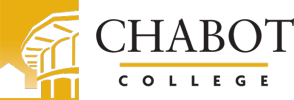
CPA Exam Preparation: Regulation
This program map from the 2024-2025 catalog year represents one possible pathway to complete this program. Your pathway may vary depending on your transfer plans and also previous college credit, including AP Test scores, concurrent enrollment courses and high school articulated courses.
I'm ready to get started. What do I do next?
- Review this program map to get an overview of the required courses
- Meet with a counselor to develop your customized student education plan www.chabotcollege.edu/counseling
- Use DegreeWorks, an online student education planning tool, to track your progress toward graduation www.chabotcollege.edu / admissions / degreeworks
CPA candidates must possess any Bachelor's degree. Additionally, the candidates must satisfy specific educational requirements (see the CalCPA website http://www.dca.ca.gov/cba/applicants/tip_sheet.pdf).
All of these educational requirements can be completed at a community college after the candidates complete their BA/BS degree. The classes within this certificate are counted towards the educational requirement for the CPA license. The certificate also prepares a candidate for one of the four parts of the CPA exam: Regulation.
The certificate itself is neither required for the CPA exam nor guarantees the student's eligibility for the CPA exam. However, it provides a guideline on what classes best prepare the candidate for the CPA exam.
What can I do with this major?
This program focuses on the Regulation component of the CPA exam. It provides a guideline for CPA candidates on which courses will best prepare them for the exam. Future CPAs have amazing prospects in three main areas: public accounting, private accounting, and government/non-profit accounting. Current projections for the Bay Area (from the EDD website) for accountants and auditors are: 17.9% annual increase in the number of jobs, and the median salary of $79,258. The CPA license in general increases salaries for these jobs by 10-15%.
Learning and Career Pathway
- Business, Economics & Information Technology
Icon Key
BUS 1A is the prerequisite course for BUS 3A and BUS 6 which are required for this certificate. If you took BUS 1A (Financial Accounting) at a college other than Chabot or Las Positas, please see a counselor to obtain a prerequisite override. www.chabotcollege.edu/counseling